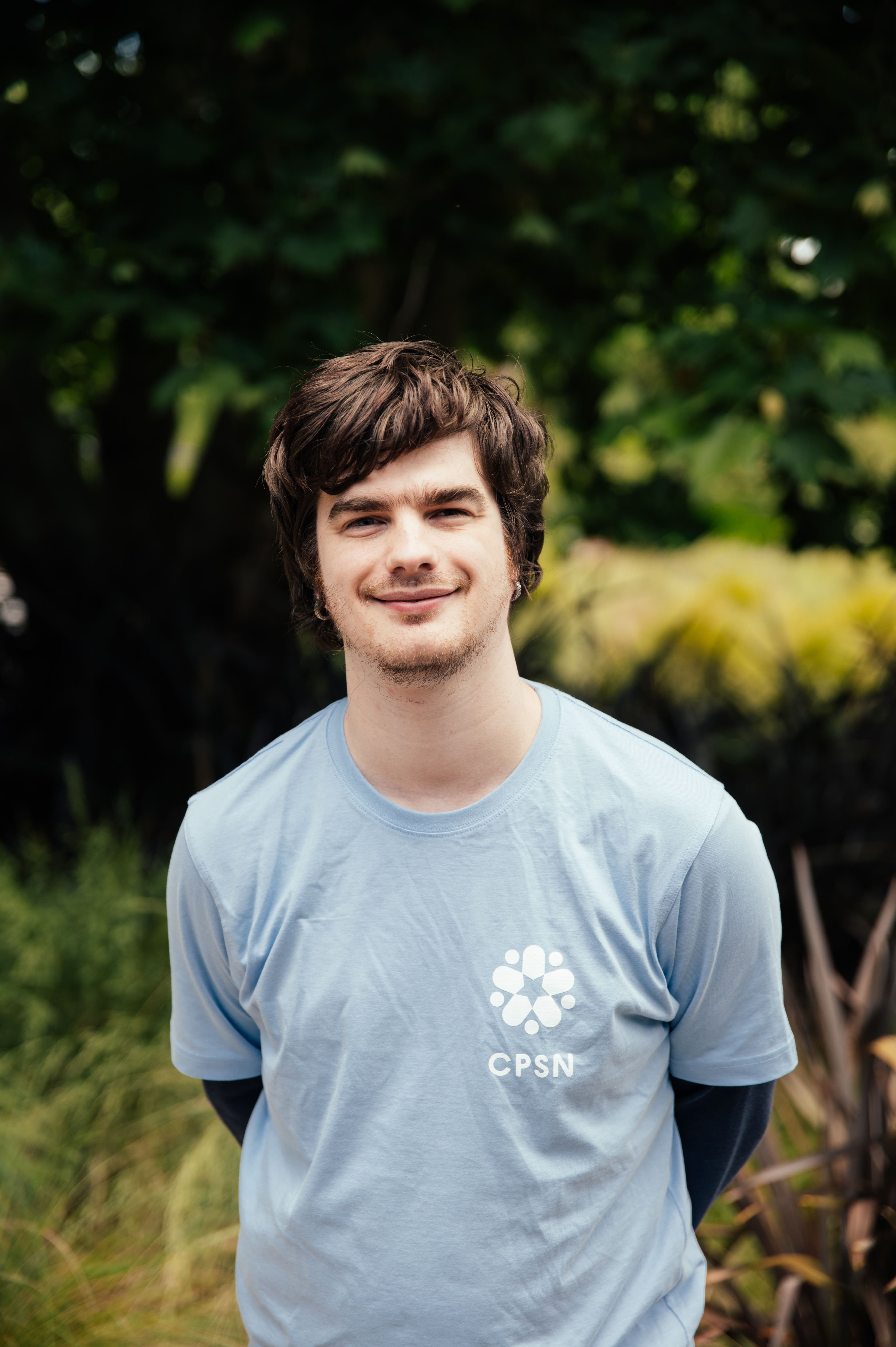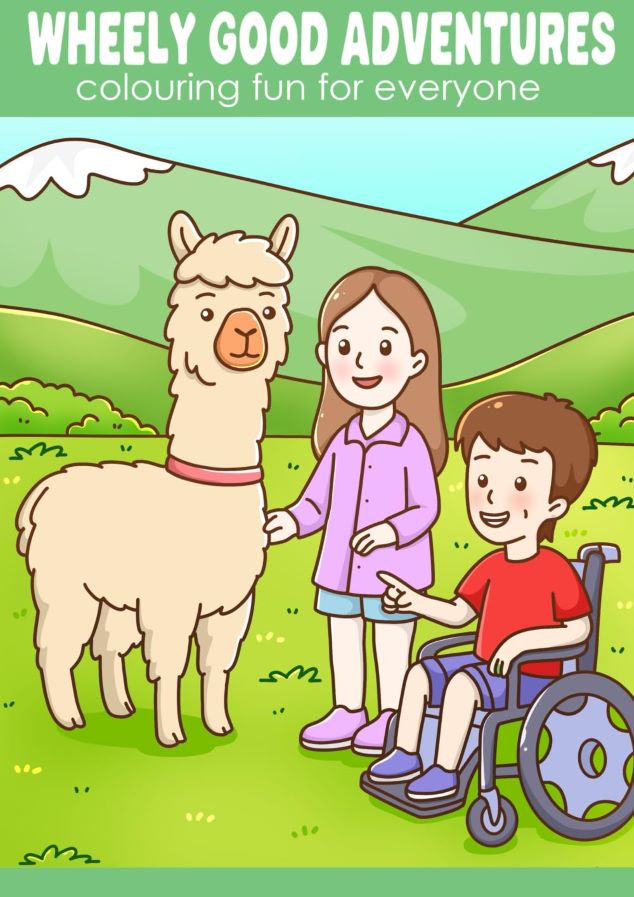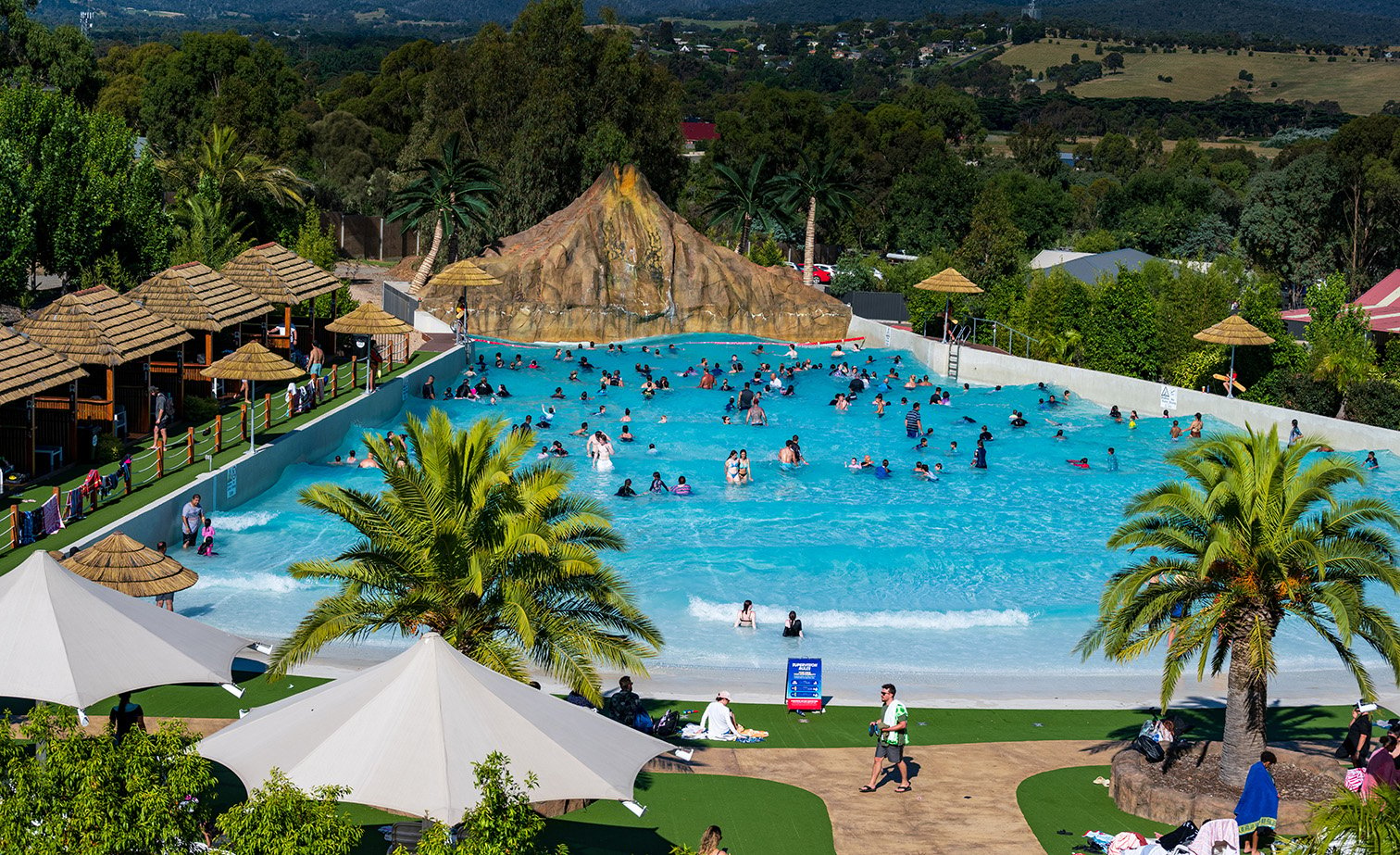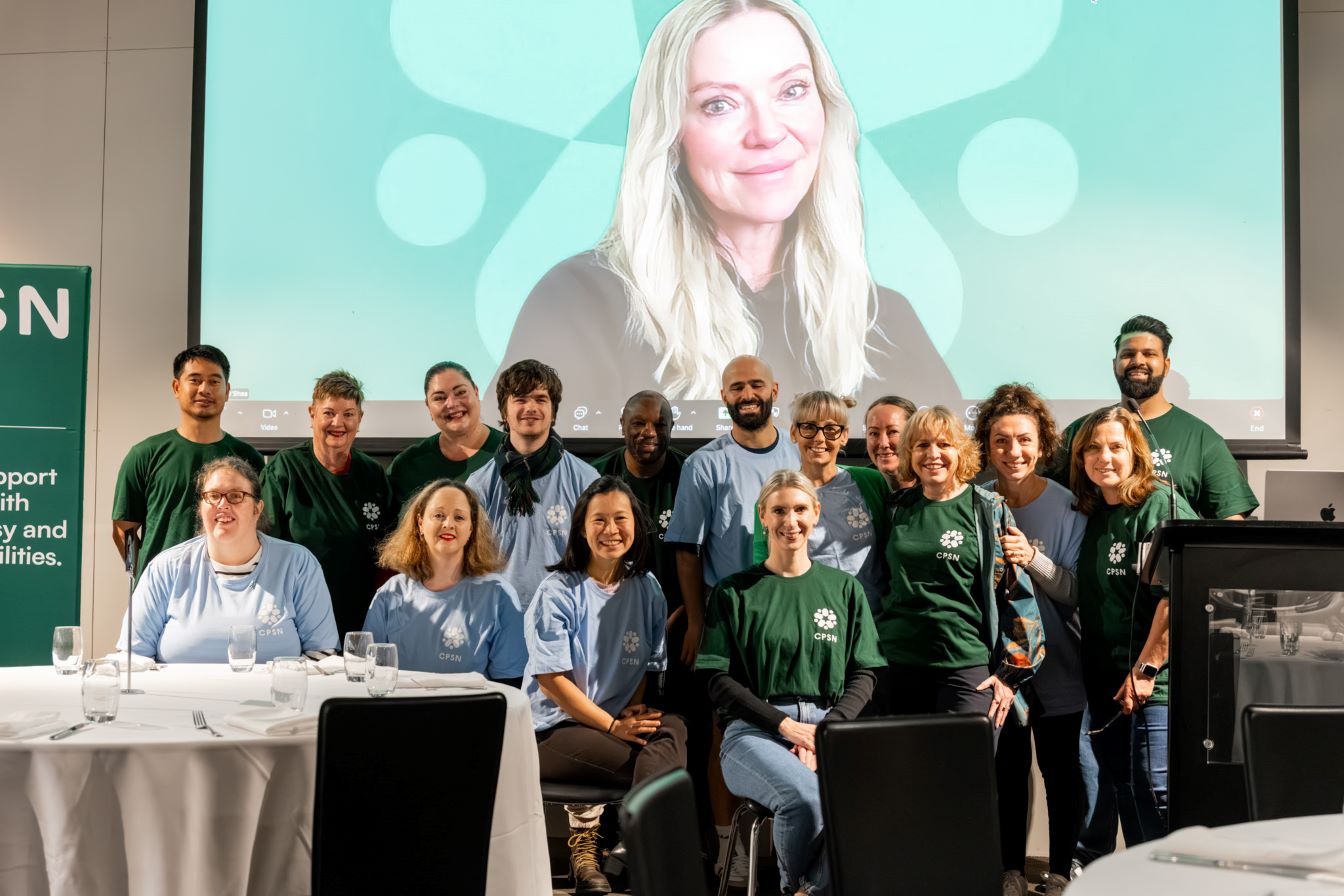Setting the Tone: Knowledge Transition
The event opened with a warm welcome from Psychologist Amy Hogan (New Zealand) and Professor Dinah Reddihough, who framed the two days ahead as a journey of “Knowledge Transition.” This theme echoed throughout the conference — it was about moving ideas forward, collaborating across disciplines, and making research meaningful and usable in real life.
Life Transitions with Emma Livingstone
Day one’s keynote speaker, Emma Livingstone, was a real highlight for me. Emma is a mother of three and founder of Up – The Adult Cerebral Palsy Movement in the UK, where, unlike Australia, CP is still not widely recognised as a lifelong condition.
Emma brought both her professional insights and personal journey growing up with CP to the stage. One of the most powerful metaphors she shared was about the transition to adulthood, explained through the idea of an airplane:
- Passenger – As children, our parents are the ‘Pilots’ and knowledge keepers about our CP.
- Co-Pilot – In Adolescence, we start to take on more responsibility, collaborating with our parents.
- Pilot – As Adults, we take full control, steering our own health and wellbeing journey.
It really struck a chord with me. That process of becoming the “Pilot” of your own life isn’t straightforward — but it’s essential. Emma also talked about tools that could help, like having a “backpack towards adulthood” filled with resources. One tool that stood out was a personal health passport — a written record of your history, treatments, and needs that can be handed to new health professionals, saving the exhausting task of repeating your story again and again.
%20(2).avif)
The Power of Physical Activity
Another big takeaway was the focus on physical activity. People with CP are more likely to live sedentary lives, not necessarily by choice but due to circumstances — wheelchairs, fatigue, limited access, or the assumption that sport is only for elite athletes.
One quote really stuck with me:
“Not everyone with a Disability wants to be a Paralympian — so why should we be interested in Sport?”
Dr Gaela Kilgour shared compelling research showing how sustained physical activity (even things like walking, errands, or just moving more) leads to better health, mental wellbeing, and life satisfaction. She spoke about a study that trained high-level mobility skills in ambulant children with CP - and the positive ripple effects were undeniable. Even things like running away from your parents (one kid’s goal!) became milestones of independence and joy.
It reminded me how physical activity isn’t just about health. It’s about identity, participation, and feeling capable in your own skin.
Exploring Genetics and Epilepsy
Dr Monica Cooper - who also sits on the CPSN board - delivered a fascinating and accessible talk on Epilepsy in people with CP due to Injury. Using colourful playdough blobs, she illustrated how early brain injuries and Epilepsy can intersect in ways that aren’t always linear.
She also touched on something I hadn’t thought much about before - the possibility of Genetic links to CP. With modern testing, families can now explore whether there may be hereditary factors in their diagnosis. It’s an emerging area and one that could shape how we think about CP into the future.

Final Thoughts
It was a privilege to be part of this event. The research was rigorous, but what made it meaningful was how grounded it was in real life - in Lived Experience, Transition, Identity, and Empowerment.
The biggest takeaway for me? Progress isn’t just about new treatments or scientific breakthroughs. It’s also about better stories, better tools, and better ways of equipping people with CP to take the lead in their own lives - as Pilots, not passengers.
.avif)
If you or someone you know needs information, Support, or connection, please reach out. We’re here to help. cpsn@cpsn.org.au (03) 9478 1001

Marketing Officer
CPSN



